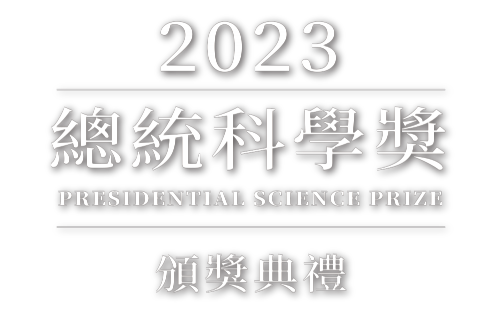About Presidential Science Prize
Established in 2001 and presented every two years, this is the 12th Presidential Science Prize. This prize symbolizes in the highest academic honor to pay respect to the most outstanding scientists in the Republic of China (ROC).
To promote Taiwan’s position in the international science community, the Office of the President has established the Presidential Science Prize to recognize innovative researchers who have made monumental contributions to international research in the fields of Mathematics and Physical Sciences, Life Sciences, Social Sciences, Applied Sciences, especially those scholars whose works have had major impact on the development and applications of these fields in Taiwan.
To implement the selection and award of this prize, the President of Academia Sinica has convened a steering committee of fifteen distinguished scientists and related cabinet ministers. Nominees for the Presidential Science Prize are only taken into consideration when
- they are nominated by academicians of Academia Sinica and/or Presidential Science Prize awardees;
- they are nominated by academic and research institutions and associations and leaders of the community invited by the Presidential Science Prize Steering Committee.
After nomination, four selection committees in the fields mentioned above perform nominee screening tasks. This year, through a careful nomination and selection process, the three awardees of this prestigious honor have been chosen as: Dr. Wen-Hsiung Li (Life Sciences), Dr. Chenming Hu (Applied Sciences), Dr. Wing-Huen Ip (Mathematics and Physical Sciences) .
Conferred by the head of state, the Presidential Science Prize gives recognition to those scientists for their long-term efforts at conducting scientific research and cultivating young researchers. This prize also aims to pay respect to outstanding scholars who have made top-notch academic achievements and to have scientific R&D fully benefit people’s livelihood.
PRESIDENTIAL SCIENCE PRIZE STEERING COMMITTEE(2020 - 2021)
| TITLE | NAME | POSITION |
|---|---|---|
| Chairman | James C. Liao | President, Academia Sinica |
| Vice Chairman | Tsung-Tsong Wu | Minister, National Science and Technology Council |
| Permanent Member | Xavier Chang | Deputy Secretary-General to the President |
| Permanent Member | Wen-Chung Pan | Minister, Ministry of Education |
| Permanent Member | Huey-Kang Sytwu | President, National Health Research Institutes |
| Member | Sea-Fue Wang | President, National Taipei University of Technology |
| Member | Chi-Hung Lin | President, National Yang Ming Chiao Tung University |
| Member | Chien-Huang Lin | President, Taipei Medical University |
| Member | Jing-Yang Jou | President, National Central University |
| Member | W. John Kuo | President, National Tsing Hua University |
| Member | Yuan-Pern Lee | Chair Professor, Dept. of Applied Chemistry, National Yang Ming Chiao Tung University |
| Member | Mei-Yin Chou | Vice President, Academia Sinica |
| Member | Yu-Yu Cheng | Chair Professor, Dept. of Chinese Literature, National Taiwan University |
| Member | Jin-Tan Liu | Distinguished Professor, Dept. of Economics, National Taiwan University |
| Member | Wanjiun Liao | Chair Professor, Dept. of Electrical Engineering, National Taiwan University |
| Executive Secretary | Kay-Hooi Khoo | Executive Secretary, Central Advisory Committee, Academia Sinica |
| Executive Secretary | Minn-Tsong Lin | Deputy Minister, National Science and Technology Council |
Eligibility and Selection Process
Established in 2001 and presented every two years, this is the 12th Presidential Science Prize. This prize symbolizes in the highest academic honor to pay respect to the most outstanding scientists in the Republic of China (ROC).
To promote Taiwan’s position in the international science community, the Office of the President has established the Presidential Science Prize to recognize innovative researchers who have made monumental contributions to international research in the fields of Mathematics and Physical Sciences, Life Sciences, Social Sciences, Applied Sciences, especially those scholars whose works have had major impact on the development and applications of these fields in Taiwan.


 Download Eligibility and Selection Process
Download Eligibility and Selection Process

